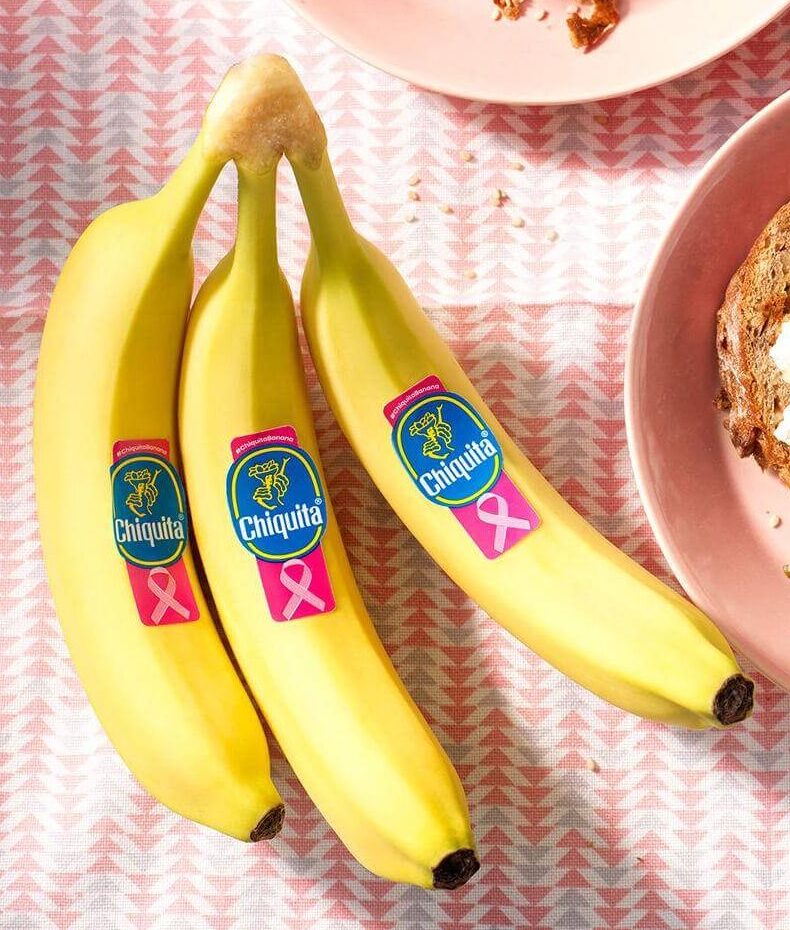If you’re here, you’re probably wondering if your favorite movie snack is secretly plotting against you. Maybe you’ve heard scary stories about microwave popcorn cancer risks, or you’re worried that popcorn causes cancer. I get it, when you’re dealing with cancer or trying to prevent it, every food choice feels like a big decision.
Here’s the good news: popcorn itself doesn’t cause cancer. In fact, this humble snack actually has some pretty impressive cancer-fighting powers. The confusion comes from old concerns about certain chemicals that used to be in popcorn bags but those are mostly history now.
Today we’re going to clear up all the confusion about popcorn and cancer, talk about whether popcorn is good for cancer patients, and help you understand exactly what’s safe to eat. No more second-guessing at the grocery store or feeling guilty about your snack choices.
Get Your Free Clean Scan Plan!
Popcorn doesn’t cause cancer. So now let’s focus on more ways you can reduce cancer risk. My free Clean Scan Plan walks you through my signature NED Method to reduce cancer risk and help keep it from coming back with simple daily actions you can start today.
Why People Think Popcorn Might Be Dangerous?
The whole “does microwave popcorn cause cancer” worry started with something real. Back in the early 2000s, microwave popcorn bags were lined with chemicals called PFCs (perfluorinated compounds). These chemicals kept the oil from leaking through the bag – great for your microwave, not so great for your health.
The main troublemaker was something called PFOA. Studies found that 98% of Americans had this chemical in their blood. That’s pretty scary, right?
But here’s what you really need to know: In February 2024, the FDA announced that these chemicals are completely gone from food packaging in the US. That means your microwave popcorn bags, pizza boxes, and fast-food wrappers no longer contain these “forever chemicals.”
Most major popcorn brands actually removed these chemicals back in 2011-2016. So if you’ve been eating microwave popcorn recently, you’re already in the clear.
What About “Popcorn Lung”?
You might have heard about something called “popcorn lung” and wondered if eating popcorn causes cancer in your lungs. This was a real condition, but it only affected factory workers who breathed in huge amounts of a butter flavoring chemical called diacetyl every single day.
One person did get it from eating two bags of microwave popcorn daily for 10 years but that’s an extreme case. Plus, popcorn makers removed diacetyl from their products back in 2007. So this isn’t something you need to worry about anymore.
The Truth: Popcorn Actually Fights Cancer
Now for the plot twist: popcorn doesn’t cause cancer – it actually helps prevent it. I know, right? Here’s why this simple snack is actually a cancer-fighting superhero in disguise.
It’s Packed with Cancer-Fighting Antioxidants
Popcorn contains more antioxidants called polyphenols than most fruits and vegetables. One serving of popcorn has up to 300 mg of polyphenols, compared to just 160 mg in a serving of fruit.
The star of the show is something called ferulic acid. Research shows this antioxidant helps fight oxidative stress that can damage your DNA and lead to cancer. It’s especially good at protecting against colon cancer, breast cancer, and prostate cancer.
Fiber Is Your Friend (Especially for Your Colon)
Did you know popcorn is a whole grain? Three cups of popcorn gives you almost 4 grams of fiber – that’s more than 10% of what you need daily. This matters because eating whole grains can lower your colon cancer risk by up to 17% for every 10 grams you eat per day.
So is popcorn good for your colon? Absolutely! The fiber helps things move through your digestive system faster, which means harmful substances spend less time in contact with your colon walls. Plus, when fiber meets the good bacteria in your gut, it creates something called butyrate that keeps your colon cells healthy.
Can Cancer Patients Eat Popcorn?
If you’re wondering “is popcorn good for cancer patients” or “is popcorn good for chemo patients,” the answer is usually yes with a few important notes.
Popcorn for cancer patients can be a great snack because it’s:
- Easy to digest when your appetite is low
- High in fiber to help with constipation (a common chemo side effect)
- Low in calories if you’re trying to maintain weight
- A whole grain that provides steady energy
However, there are times when you might want to skip it:
- If you have mouth sores from treatment (those hulls can be scratchy)
- During severe nausea or diarrhea
- If your doctor has you on a low-fiber diet
- When your immune system is very weak (stick to freshly popped, not pre-packaged)
Always check with your care team about what’s right for your specific situation.
Popcorn = fine. Want to work the levers that actually lower recurrence risk? Start my NED Method with the free Clean Scan Plan—one guide, five pillars, one action today.
What About Colon Polyps and Diverticulosis?
For years, doctors told people with diverticulosis to avoid popcorn because they thought the hulls could get stuck in the pouches in your colon. But guess what? A huge study of almost 50,000 men found that eating popcorn doesn’t increase problems with diverticulosis at all.
As for popcorn and colon polyps there’s no evidence that popcorn causes polyps. In fact, the opposite might be true. The fiber and antioxidants in popcorn may actually help prevent polyps from forming in the first place.
Some very old research from the 1980s suggested that sharp popcorn hulls might irritate the colon, but modern studies haven’t found any connection between eating popcorn and developing popcorn and colon cancer or polyps.
How to Choose the Safest Popcorn?
Not all popcorn is created equal. Here’s how to pick the healthiest options:
Best Choices:
- Air-popped popcorn you make at home (the absolute healthiest)
- Stovetop popcorn made with olive or avocado oil
- Organic microwave popcorn from brands that specifically say “PFOA-free”
- Brands like SkinnyPop or Lesser Evil that use simple ingredients
What to Avoid:
- Movie theater popcorn (can have 1,200 calories in a large!)
- Heavily buttered or flavored varieties
- Brands with long ingredient lists you can’t pronounce
- Old stock that might still contain the older packaging
Making Your Own Cancer-Fighting Popcorn

Making your own popcorn is easier than you think, and it completely eliminates any worries about microwave popcorn cancer risk. Plus, you can add toppings that actually boost the cancer-fighting power!
Simple Stovetop Method:
- Heat 2 tablespoons of olive oil in a large pot with a lid
- Add 2 test kernels – when they pop, it’s ready
- Remove from heat, add 1/2 cup kernels, wait 30 seconds
- Return to medium heat with lid slightly cracked
- Shake the pot occasionally until popping slows
- Season and enjoy!
Cancer-Fighting Topping Ideas:
- Turmeric and black pepper – powerful anti-inflammatory combo
- Nutritional yeast – adds B vitamins and a cheesy flavor
- Cinnamon – helps regulate blood sugar
- Garlic powder – contains cancer-fighting compounds
- Seaweed flakes – rich in iodine and minerals
- Dark cocoa powder – more antioxidants!
The Bottom Line on Popcorn and Cancer
Let me be crystal clear: popcorn does not cause cancer. The chemicals that raised concerns are gone from US food packaging. Air-popped popcorn is actually one of the healthiest snacks you can eat, especially for cancer prevention.
If you’re dealing with cancer or worried about prevention, popcorn can absolutely be part of your healthy diet. Just choose wisely, make it yourself when possible, and listen to your body about what feels good.
Remember, no single food causes or cures cancer. It’s about your overall pattern of eating and living. But it’s nice to know that something as simple and enjoyable as popcorn can actually be on your side in the fight against cancer.
Your Questions Answered
Can Microwave Popcorn Cause Cancer?
No, especially not the brands sold today. The concerning chemicals were removed from packaging years ago.
Is Popcorn Bad for Your Colon?
Actually, it’s good for your colon! The fiber and antioxidants help protect against colon cancer.
Does Popcorn Cause Colon Cancer?
No evidence supports this. In fact, whole grains like popcorn may help prevent colon cancer.
Can Cancer Patients Eat Popcorn?
Usually yes, but check with your care team if you have mouth sores, digestive issues, or a weakened immune system.
Is Popcorn Good for Chemo Patients?
Yes, tt can be, especially for managing constipation and getting whole grains. But avoid it if you have mouth sores or nausea.
Moving Forward Without Fear
Food shouldn’t be scary. You’ve got enough on your plate (pun intended) without worrying about whether your snacks are secretly dangerous. The truth is, popcorn can be a delicious, nutritious part of your cancer-prevention toolkit.
So go ahead – pop that corn, add some healthy toppings, and enjoy it without guilt. Your body (and your taste buds) will thank you.
Ready to Feel More Confident About Your Scans?
Confidence comes from doing what actually lowers recurrence risk every day. My free Clean Scan Plan walks you through my NED Method – five pillars (nutrition, movement, hydration, sleep, stress) to reduce cancer risk and help keep it from coming back with simple, repeatable actions.
Yes! Send Me the Free Clean Scan Plan →
References
- FDA Announces End of PFAS in Food Packaging (2024)
- Analysis of Popcorn for Antioxidant Capacity – NIH Study (2019)
- Cleveland Clinic: 7 Health Benefits of Popcorn (2025)
- Cancer Research UK: Wholegrains and Cancer Risk (2025)
- Healthline: Microwave Popcorn Cancer Facts (2019)
- Natural Polyphenols for Cancer Prevention – PMC (2016)
- American Cancer Society: Food Safety During Treatment




